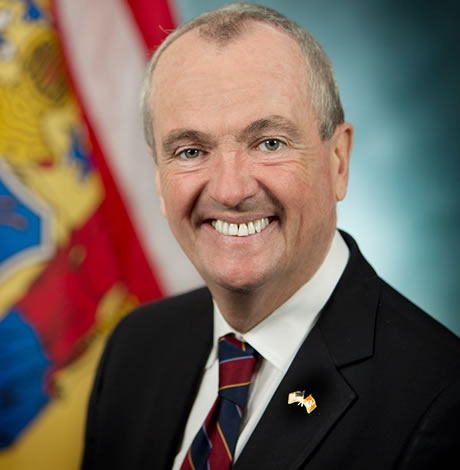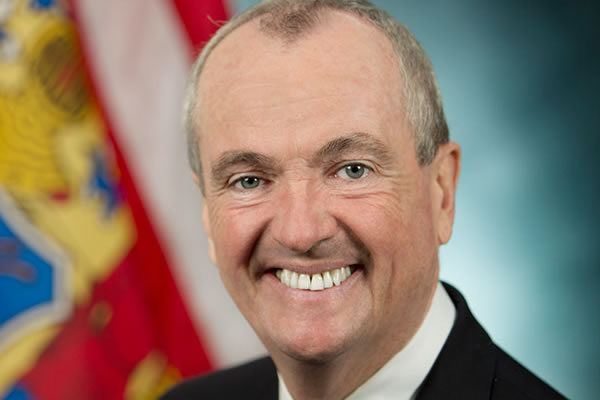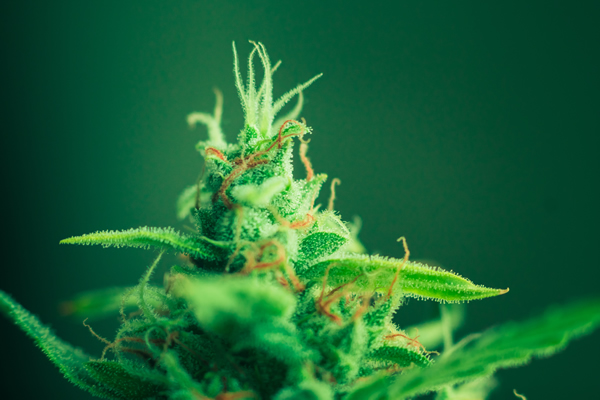Cannabis Culture
Cannabis Culture
N.J. lawmakers delay legalization vote

N.J. lawmakers delay legalization vote

TRENTON, N.J. — Lawmakers have postponed scheduled floor votes on legislation that sought to legalize and regulate the adult use marijuana market. The delay was announced after it became unclear whether the measure possessed enough votes to pass on the Senate floor.
Despite the delay, Democratic Gov. Phil Murphy continues to back the plan, as does Senate President Stephen Sweeney. “The fight is not over,” Sen. Sweeney said. “Anybody who thinks this is dead is wrong. This is not an issue that’s going away. Marijuana will get passed in the state of New Jersey one way or another.”
Commenting on the delay, NORML Political Associate Tyler McFadden said: “Voters and lawmakers both agree that the practice of treating marijuana consumers as second-class citizens must end. Unfortunately, legislative intransigence regarding how best to create a regulatory framework has resulted in, at least for now, a continuation of the failed policy of marijuana criminalization in the Garden State.”
Medical marijuana linked to greater employment in elders
BALTIMORE — The enactment of medical cannabis access laws is associated with better reported health outcomes among older Americans and greater labor participation, according to data published in The Journal of Policy Analysis and Management.
A pair of researchers from the Johns Hopkins University School of Public Health in Baltimore and Temple University in Philadelphia assessed the relationship between medical marijuana laws and health in those ages 51 and older.
They found that those who qualified for medical cannabis access reported experiencing less pain, and greater overall health compared to matched respondents in non-medical states. Those eligible for medical cannabis access also showed increased participation in the workplace.
“These findings suggest that access to medical marijuana through MMLs (medical marijuana laws) allows at least some older adults to better manage symptoms associated with health conditions that can interfere with productivity and quality of life,” authors reported. “Our findings suggest that there are potentially important social benefits to MMLs that must be considered in policy decisions regarding medical marijuana regulation.”
The findings expand upon a previous working paper authored by the pair in 2016.
Washington: Teens not using more pot after legalization
SPOKANE, Wash. — The enactment of adult use marijuana sales in Washington State is not associated with upticks in self-reported marijuana use by most teens, according to data published in The Journal of Adolescent Health.
A team of investigators from Washington State University, the University of Massachusetts, and the Colorado School of Public Health assessed trends in teen marijuana use and employment in the years immediately prior to and immediately following the enactment of retail marijuana sales (2010 to 2016).
They reported that, “marijuana use decreased significantly among working and non-working 8th and 10th graders.” Marijuana use similarly declined among 12th graders who were not employed. Among 12th graders who were employed more than eleven hours per week, self-reported cannabis use increased over the study period. The study’s authors acknowledged that this latter finding was not unexpected because “the workplace may expose adolescents to peer or adult coworkers’ potentially unhealthy behaviors, including substance use.” Authors further acknowledged that working youth were also more likely to have reported using cannabis prior to the passage of legalization.
Texas official removes hemp from controlled substances act
AUSTIN, Texas — An amendment authored by the Texas Department of State Health Services removes industrial hemp and certain hemp-derived cannabinoids from the state’s controlled substances act. The order takes effect on April 5.
The order states that under Texas law, “The term marihuana does not include hemp,” as defined under the provisions of the 2018 Farm Act. The language also exempts certain compounds extracted from industrial hemp from the state list of controlled substances.
In December, the president signed legislation into law amending the federal Controlled Substances Act of 1970 so that hemp plants containing no more than 0.3 percent THC are no longer classified as a schedule I controlled substance under federal law. The Act also broadens the definition of ‘hemp’ (Section 297A) to include “any part of the plant, including … extracts [or] cannabinoids” that do not possess greater than 0.3 percent THC on a dry weight basis. The new order comports Texas’ statutes with the federal law.
Speaking to Congress in March, Agriculture Secretary Sonny Perdue said that the Department is working to create federal hemp regulations by 2020. Under the provisions of the 2018 Farm Bill, US states that wish to license commercial hemp cultivation must submit their plan to the USDA.
Currently, there are no specific Texas statutes establishing regulations for the commercial production of industrial hemp. The state does regulate the production and dispensing of CBD, but only through a narrow medical program.
Cannabis Culture news in the Blade is provided in partnership with NORML. For more information, go to NORML.com or contact Paul Armentano, NORML Deputy Director, at [email protected].

Democratic Gov. Michelle Lujan Grisham earlier this month signed two separate measures into law amending the state’s marijuana policies. The first measure (House Bill 2) legalizes and regulates marijuana possession, production, and sales for adults. The second measure (Senate Bill 2) facilitates the automatic review and expungement of the records of those convicted of low-level marijuana offenses.
Lawmakers approved both bills during a special legislative session demanded by Gov. Lujan Grisham, who had been a vocal proponent of the reforms.
NORML State Policies Manager Carly Wolf said: “This is a day to celebrate! New Mexico will greatly benefit from this new revenue stream and the creation of thousands of jobs. Most notably though, legalization will spare thousands of otherwise law-abiding residents from arrest and a criminal record, and the state’s new expungement law will help provide relief to many who are suffering from the stigma and other collateral consequences associated with a prior marijuana conviction.”
The adult-use measure (House Bill 2) permits those ages 21 and older to legally purchase up to two ounces of marijuana and/or up to 16 grams of cannabis extract from licensed retailers. It also permits adults to home-cultivate up to six mature plants for their own personal use. Retail sales would begin by April 2022.
The expungement measure (Senate Bill 2) stipulates that those with past convictions for offenses made legal under this act are eligible for automatic expungement of their records. Those currently incarcerated for such offenses are eligible for a dismissal of their sentence. It’s estimated that over 150,000 New Mexico residents are eligible for automatic expungement under this measure, according to the Department of Public Safety.
Cannabis Culture news in the Blade is provided in partnership with NORML. Visit norml.org for more information.
Cannabis Culture
Delaware cannabis activists take on corporate marijuana
Criticism from medical marijuana operators claimed that HB150 offers too many cultivation and retail licenses

As the country moves forward with sweeping changes in cannabis policy reform, locals in Delaware are tangling with corporate, multi-state medical marijuana permit holders to pass a bill for full legalization.
Adult-use activists and registered medical patients were stunned to hear opposing testimony from Delaware’s medical marijuana operators. Patients already deal with limited access and costly products. Now, many see the established industry voicing opposition as simply obstructing the progress of adult-use legislation. In response, some patients are now staging a boycott of the regulated dispensaries.
During the first committee hearing for HB150, Delaware’s adult-use bill, four of the state’s six currently licensed, multi-million dollar medical cannabis facilities offered negative testimony.
Zoë Patchell, executive director of Delaware CAN responded: “This market belongs to the long-time consumers, patients, and activists. We create the demand, we’ve been the ones driving the reform efforts, and we pay the prices at dispensaries. Cannabis is more than a market – cannabis is a community. These companies cannot reasonably fathom that we are going to purchase cannabis from any entity that has proven to put profits over patients. And now they seem willing to put consumers’ lives and freedom at risk just to hold out for an unfair advantage in the industry.”
These included publicly traded Columbia Care, “Fresh Delaware” aka CCRI, CannTech Research Inc., and the owner of EZY Venture aka “The Farm.”
They all went on record condemning HB150, and pushing a false narrative about oversupply. The core demand from the permit cartel was some protection for their private business interests with guaranteed adult-use licenses.
Criticism from the medical marijuana operators claimed that HB150 offers too many new cultivation and retail licenses, underlined by deep yet unfounded fears that the new competition would put their companies out of business.
Patchell noted, “We are not going to sit back while multi-state corporate entities, that already monopolize East Coast medical markets, work to undermine our social equity and micro-license provisions.”
Cannabis Culture news in the Blade is provided in partnership with NORML. Visit norml.org for more information.
Cannabis Culture
Virginia marijuana legalization takes effect July 1
Adult possession of cannabis up to one ounce without penalty

Following legislative approval of Democratic Gov. Ralph Northam’s amendments to Senate Bill 1406 and House Bill 2312, Virginia became the first southern state to legalize the possession and use of marijuana by adults.
Senate Bill 1406, introduced by Sen. Adam Ebbin (D-30) and Senate President Pro Tempore Senator Louise Lucas (D-18), and House Bill 2312, patroned by House Majority Leader Delegate Charniele Herring (D-46), establish a statutory timeline for the legalization of the commercial marijuana market in Virginia. The measure also permits for the personal possession and cultivation of cannabis by those ages 21 or older.
Last week, Gov. Northam recommended changes to the legislation to permit the personal use provisions of the law to take effect on July 1, 2021 rather than on January 1, 2024, the enactment date initially approved by lawmakers. A majority of the legislature concurred with that change.
Therefore, beginning July 1, 2021, adults will be permitted to possess up to one ounce of marijuana and to cultivate up to four cannabis plants per household without penalty.
The timeline by which state regulators have to enact provisions licensing commercial cannabis production and sales remains July 1, 2024.
Commenting on final passage, NORML Development Director Jenn Michelle Pedini, who also serves as executive director of Virginia NORML, said: “This is an incredible victory for Virginia. Legalization will bring an end to the thousands of low-level marijuana infractions occurring annually in the Commonwealth — ending a discriminatory practice that far too often targets Virginians who are young, poor, and people of color.”
Majority Leader Charniele Herring added: “It is a huge day for equity in the Commonwealth. Virginia is now the first state in the South to legalize recreational marijuana use, and I am so proud to have been able to carry this monumental legislation.”
Sen. Ebbin said, “The passage of SB1406 caps off years of struggle to reform our broken and outdated marijuana laws and begins the deliberate steps to repeal the harms of the failed prohibition. I am thankful to NORML, the governor, and my colleagues for moving this 283 bill from inception to passage over the last four months, and look forward to continuing to partner with them to establish a regulated, equity focused, adult-use marketplace in the coming years.”
Newly released statewide polling data finds that 68 percent of registered voters in Virginia, including majorities of Democrats and Republicans, support legalizing marijuana for adults.
Additional amendments added by Gov. Northam will allow the sealing of records related to crimes involving the misdemeanor possession of marijuana with the intent to distribute. Those records will begin to be sealed starting on July 1, 2021. Separate legislation enacted in 2020 previously sealed records related to misdemeanor marijuana possession.
Records specific to the simple possession of marijuana and/or misdemeanor possession with intent to distribute records will be automatically expunged no later than 2025. Those with records specific to crimes involving the felony possession of marijuana with the intent to distribute may begin to petition the courts for an expounging of their records in 2025.
The bill also allows for the re-sentencing of individuals currently incarcerated for marijuana-related offenses. The measure permits those individuals to have a hearing before the court that originally sentenced them, with legal counsel provided for indigent individuals. However, this portion of the bill must be reenacted in 2022.
The legislation also establishes an independent agency, the Virginia Cannabis Control Authority, to oversee the establishment of regulations that will govern the adult-use market. This agency is set to convene this summer. The remainder of the 300-page bill, which details the regulatory and market structure and social equity provisions, is subject to a second review and vote by the Assembly next year.
Cannabis Culture news in the Blade is provided in partnership with NORML. Visit norml.org for more information.
-

 U.S. Supreme Court4 days ago
U.S. Supreme Court4 days agoSupreme Court upholds ACA rule that makes PrEP, other preventative care free
-

 U.S. Supreme Court4 days ago
U.S. Supreme Court4 days agoSupreme Court rules parents must have option to opt children out of LGBTQ-specific lessons
-

 National5 days ago
National5 days agoEvan Wolfson on the 10-year legacy of marriage equality
-

 Congress5 days ago
Congress5 days agoSenate parliamentarian orders removal of gender-affirming care ban from GOP reconciliation bill












